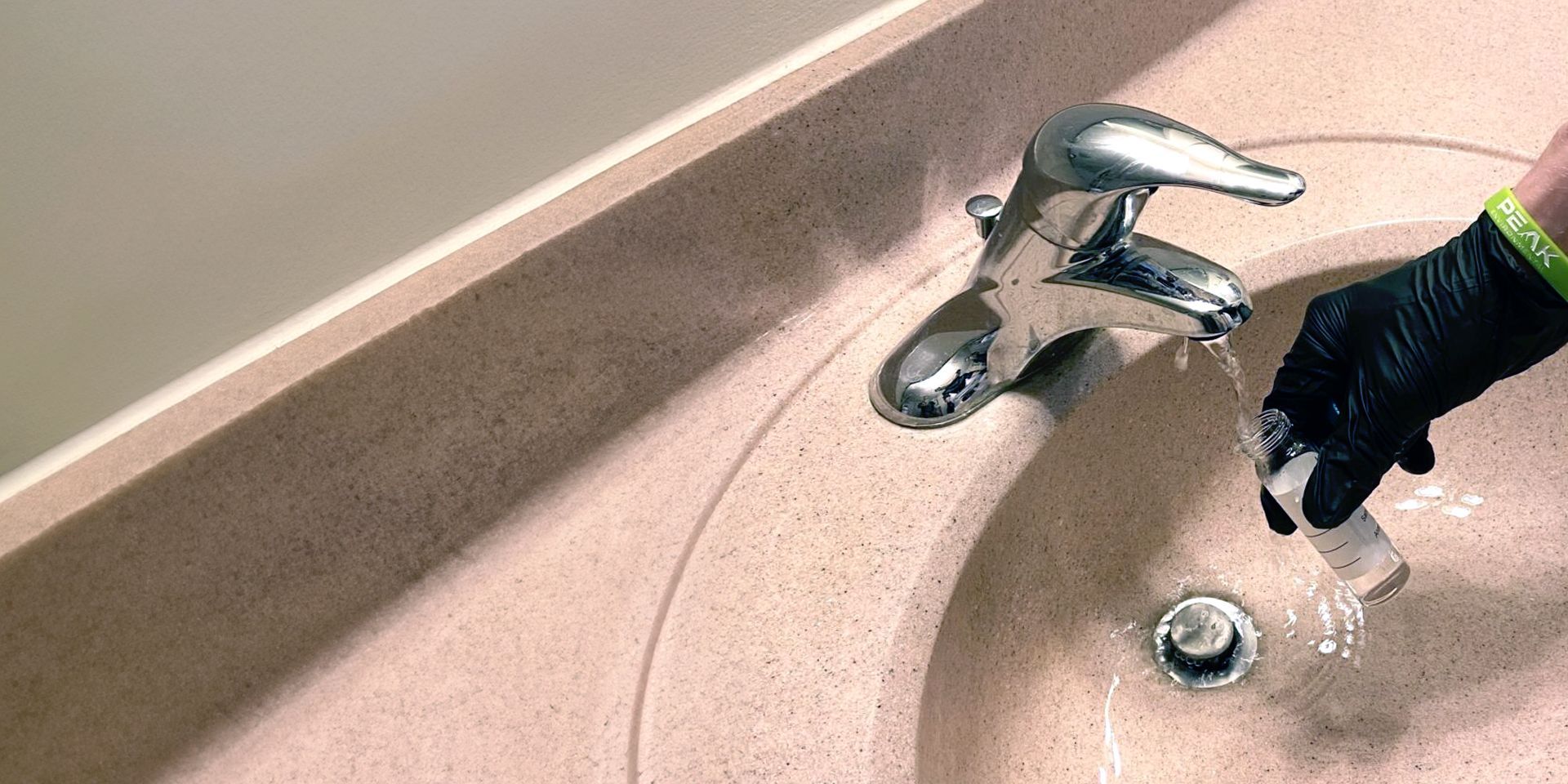Starting At $249
Water testing
Your Home Runs On Water, ensure there's no contaminants.
Contaminants find their way into water from old pipes, agriculture, industry, and other sources. Often these contaminants have no color, smell or taste. Local authorities will test at some public water facilities, but they don’t know what’s coming out of your faucet.
When you turn on your tap, you’re likely receiving water from the local water treatment plants that’s regulated, tested, and reported by the government. The governments standards for drinking water can vary, and they’re supposed to notify recipients if contaminants are found in the water, but that may only be disclosed once a year.
If you live on an older property, you may also receive your water from a well located nearby. You alone are responsible for making sure the water meets quality standards safe for drinking.
If you have a well on your property, you’ll want to regularly have your water tested.

Get a water test for your home
Pro Test
Well or City Water
Satisfies FHA/VA loan requirements (only for wells)
Tests Include:
- 29 Metals:
Aluminum, Antimony, Arsenic, Barium, Beryllium, Boron, Cadmium, Calcium, Chromium (Total), Cobalt, Copper, Iron, Lead, Lithium, Magnesium, Manganese, Mercury, Molybdenum, Nickel, Selenium, Silver, Sodium, Strontium, Thallium, Tin, Titanium, Uranium, Vanadium, Zinc
- 11 Non-Metals:
Alkalinity (as CaCO3), Chloride, Conductivity*, Fluoride, Hardness, Nitrate (as N), Nitrite (as N)*, Phosphorous, Sulfate, Turbidity*, pH
- Microbes:
E. coli*, Total Coliform*
- Other: Total Dissolved Solids, Potassium, Silica*, Three measures of water hardness (Grains Per Gallon, Total, and Calcium/Magnesium), Sodium Adsorption Ratio (suitability for irrigation), Langelier Saturation Index (ability to dissolve heavy metals)
*not included in city water tests*
Radon Screen Test
Well or City Water / Recommended For Well Tests
Test Include:
- Radiochemistry, Radon (Groundwater)
Peak Answers to Common questions
How to test water quality?
To test water quality:
- Get a testing kit or contact a professional service like Peak Environmental.
- Follow instructions for sample collection and testing.
- Perform tests for bacteria, pH, chlorine, and contaminants.
- Interpret results or seek expert guidance.
- Take appropriate action for water treatment or improvement. Choose Peak Environmental for reliable water testing. Contact us today.
How often should i get my water tested?
Experts recommend testing your water at least once a year for bacteria, nitrates, and total dissolved solids (TDS). However, the frequency of testing will depend on a few factors, such as the age of your well, the depth of the well, and environmental risk factors. For example, if your well is older or located near agricultural or industrial areas, you may want to test more frequently.
What are the most common home water contaminates?
The most common home water contaminants include lead, fluoride, chlorine, bacteria, viruses, nitrates, and arsenic. Lead is a harmful heavy metal that can seep into the water supply from old lead pipes or outdated plumbing fixtures. Exposure to lead can cause long-term health effects, particularly in children. Fluoride is added to water in some areas as a form of dental health treatment, but excessive amounts of fluoride can be dangerous to human health. Chlorine is used to disinfect water as it passes through the municipal water system, but itcan create unwanted byproducts that are known carcinogens. Bacteria and viruses can also find their way into the water supply and cause illness. Nitrates are chemicals that come primarily from fertilizer and can be particularly harmful to infants. Arsenic is a naturally occurring element that can be found in groundwater and can cause skin damage and other serious health issues over time. It is important to regularly test your water for these contaminants to ensure that it is safe for you and your family to drink.
Does well water have fluoride?
Well water does not necessarily have fluoride, as it is not regulated or treated like municipal water. Fluoride is typically added to municipal water supplies to aid in the prevention of tooth decay. However, the presence of fluoride in well water is dependent on the local geology and mineral content of the surrounding area. Some regions naturally have high levels of fluoride in their groundwater, while others have very low levels. In fact, several states recommend testing private wells for fluoride levels, as excessive amounts of fluoride in drinking water can lead to health issues such as dental fluorosis and bone disease. Therefore, if you rely on well water for your drinking needs, it’s crucial to have your water tested regularly to ensure it meets safety and health standards.
Health effects of contaminated water
Contaminated water poses health risks such as gastrointestinal problems, infections, skin irritations, and respiratory complications. Common contaminants include bacteria, viruses, heavy metals, pesticides, and industrial pollutants. Short-term effects may include nausea, diarrhea, and skin rashes, while long-term exposure can lead to chronic illnesses and organ damage. Regular water testing is essential to identify and address contamination. At Peak Environmental, our certified professionals offer advanced testing and provide solutions such as filtration systems and water purification methods to ensure the safety of your water supply. Prioritize your health and schedule a water testing appointment with us today.
DIY water testing vs. professional water testing
When it comes to water testing, professional testing offers accurate and reliable results with comprehensive analysis of contaminants. Certified experts use specialized equipment and provide expert interpretation of results, ensuring peace of mind. DIY testing may lack precision and overlook potential hazards. Also, DIY testing often requires you to interpret the results on your own, which can be challenging without proper knowledge and expertise. Choose professional water testing from Peak Environmental for accurate assessments and to prioritize your health and well-being.

